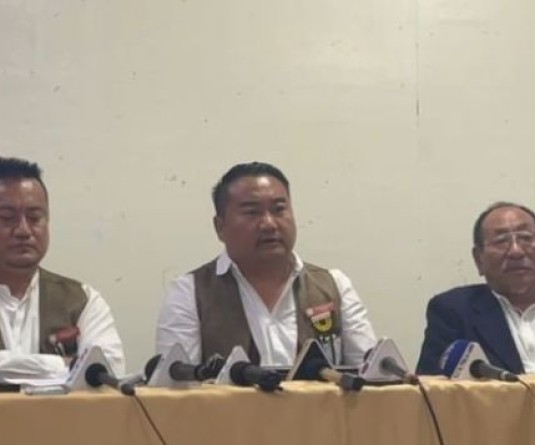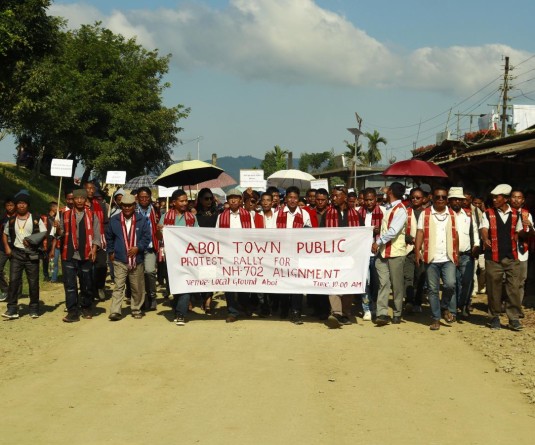
Morung Express News
Dimapur | August 18
Documenting and preserving oral narrative alongside the current wave of Naga writings in English was at the core of a keynote address delivered by Padma Shri, Dr. Temsula Ao at a scholastic seminar today.
The UGC-sponsored seminar - Vision and mission in writings from Nagaland: From the perspective of Nagaland Literature in English – was organised by the Department of English, Pranabananda Women’s College, Dimapur. A poet, short story writer, ethnographer and a retired Professor of English, Dr. Temsula sharing her thought and vision on the topic said that the literature of Nagaland should not only be confined to English alone. “When we talk of writings from Nagaland we seem to talk of those written in English,” she said while adding, “Let us not narrow down Naga literature as only those written in English.”
According to her, “What we talk of as writings from Nagaland is not our primary literature” rather it is the oral lore and narratives that forms the basis of the present day literature. Admitting the absence of one uniform Naga language has been a barrier; nevertheless there are good amount of works in Naga dialects, she added.
“I firmly believe that the literature of a people encompasses everything about them, every small detail of life,” she said while recalling how Native American and African writers drew inspiration from oral traditions in the movement towards assertion of identity.
Stating that the “intelligible essence of our culture is still vibrant in us,” she admitted it is encouraging to see Nagas taking to writing. Stating “our writings” would be the harbinger of change, she posed a challenge for Naga writers to take up and confront issues with positive intent.
Dr. Nigamananda Das, HoD, Department of English, Nagaland University observed how Naga writings has transformed and grown over the past few years. Citing Easterine Iralu, Dr. Temsula and others as exemplars, Dr. Das expressed optimism that the current wave of writings would continue with the same passion and consistency.
The daylong seminar included paper presentations with professors from several colleges reflecting on the progression of Naga writings and on works by Naga writers.





